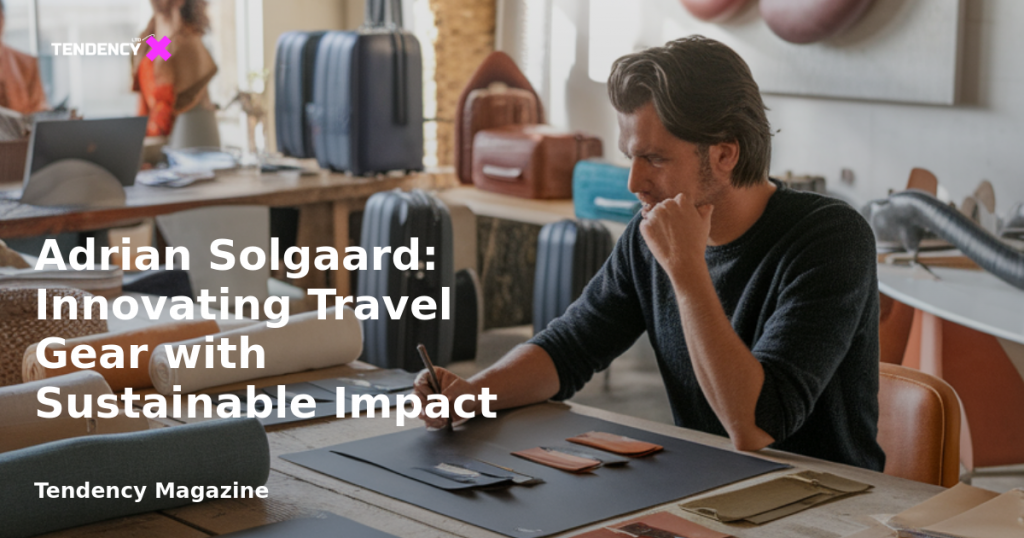Adrian Solgaard: Innovating Travel Gear with Sustainable Impact

Table of Contents:
- Crowdfunding: A Modern Community Tool
- Designing Products for Real Human Needs
- Building Trust with Factory Partners
- Embedding Sustainability into Business
- Conclusion
Crowdfunding: A Modern Community Tool
When Solgaard’s solar-powered backpack debuted on Kickstarter, it achieved its funding goal within just six hours, eventually raising $1.2 million. This success was not merely a result of hype but rather a deep understanding of community dynamics. Adrian views crowdfunding as a community tool, particularly effective for physical products when creators lead with compelling storytelling and a distinct point of difference.
Kickstarter audiences are typically early adopters, attracted to innovative, future-focused ideas. Adrian emphasizes that modern crowdfunding is less about going viral and more about testing narratives. It provides entrepreneurs with a platform to build awareness, test messaging, and connect with potential customers long before products reach the market. By approaching crowdfunding as an opportunity to refine ideas and understand audiences, even small launches can generate lasting momentum.
Designing Products for Real Human Needs
The concept for Solgaard’s Carry-On Closet suitcase originated from a simple observation: travelers often unpack into chaos. Recognizing this universal problem, Adrian set out to create a solution. Despite lacking 3D modeling skills, he began with cardboard, duct tape, and sketches to visualize a suitcase that could transform into a collapsible shelving system. This iterative process of prototyping and testing guided Solgaard’s product development, emphasizing the importance of learning over perfection.
By releasing early versions through crowdfunding, Adrian gathered valuable feedback before committing to large-scale production. This approach prioritizes real-world insights, turning small experiments into the foundation for significant achievements.
Building Trust with Factory Partners
A key element behind Solgaard’s success is the enduring relationships with factory partners. Adrian attributes this to his hands-on approach from the very beginning. He stresses the importance of visiting factory floors, observing work environments, and building relationships based on respect rather than mere transactions. Regular communication through platforms like WeChat helps maintain these relationships, ensuring that they are grounded in transparency and mutual respect.
Adrian encourages other founders to adopt a similar approach: prioritize transparency, communicate frequently, and remain curious about the production process. This hands-on involvement not only ensures better quality control but also fosters partnerships capable of adapting as the business scales.
Embedding Sustainability into Business
Solgaard’s commitment to sustainability began during a surf trip to Bali, where Adrian witnessed firsthand the devastating impact of plastic waste on beaches. This experience inspired him to design a supply chain capable of transforming ocean-bound plastic into Solgaard’s own Shore-Tex fabric. Today, every Solgaard product incorporates recycled materials and contributes to the removal of six pounds of plastic from beaches and waterways, amounting to over three million pounds of waste diverted so far.
For Adrian, sustainability is not a marketing gimmick but a core business philosophy. His goal is to leave the world better than he found it, treating environmental impact as an integral part of the business model rather than an afterthought.
Conclusion
Adrian Solgaard’s journey from a stolen bike to a sustainable travel brand is a testament to the power of creativity, discipline, and a commitment to making a difference. His approach highlights the importance of understanding community dynamics through crowdfunding, designing products that genuinely address human needs, building trust with manufacturing partners, and embedding sustainability into the very fabric of a business.
For entrepreneurs seeking to build meaningful brands, Adrian’s story offers a roadmap for combining innovation with purpose. By aligning creativity and discipline with a genuine care for the planet, businesses can not only shape what they sell but also define what they stand for.
2025 Tendency LTD. All rights reserved.

